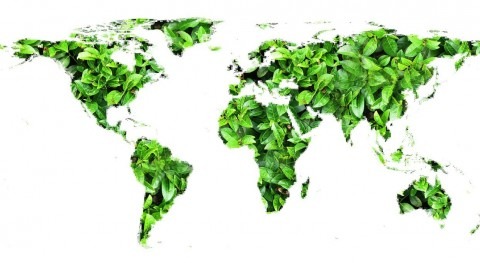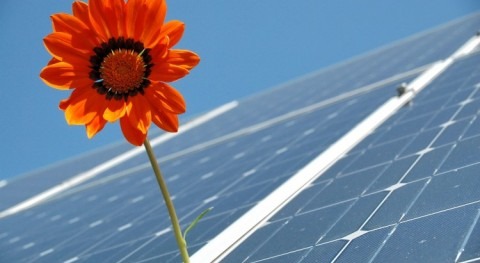The green economy enables economic growth and investment while increasing environmental quality and social inclusiveness. A key aspect of the green economy is that it reduces water-energy-food nexus pressures.
The traditional economic model of employing various types of capital, including human, technological, and natural, to produce goods and services has brought about many benefits including higher living standards and improved human well-being. At the same time, economic growth has resulted in environmental degradation. In addition, the global economic model is confronted by a wide array of trends including rapid population growth, urbanisation, increasing poverty, and inequality as well as climate change resulting in resource scarcity and social challenges. In response, many multi-lateral organisations have called for the development of a green economy that improves human well-being and social equity and reduces environmental degradation.
The Green Economy
The green economy as one that results in ‘improved human well-being and social equity, while significantly reducing environmental risks and ecological scarcities. In its simplest form, a green economy is low carbon, resource efficient, and socially inclusive. In this type of economy, growth in income and employment are driven by both public and private investments that reduce carbon emissions, enhance resource efficiency, and prevent the loss of biodiversity and ecosystem services. A key component of this economy is that economic development views natural capital as a key economic asset and as a source of public benefit. The overall aim of a transition towards a green economy is to enable economic growth and investment while increasing environmental quality and social inclusiveness.
Green growth
In the green economy, green growth is about fostering economic growth and development while ensuring that natural assets continue to provide the resources and environmental services on which our well-being relies. There are a variety of characteristics attributed to green growth including more effective use of natural resources in economic growth, valuing ecosystems, inter-generational economic policies, increased use of renewable sources of energy, protection of vital assets from climate-related disasters, and reduced waste of resources.
Objectives of the Green Economy
The main overall objectives of the green economy and green growth include:
- Improving resource-use efficiency: a green economy is one that is efficient in its use of energy, water, and other material inputs
- Ensuring ecosystem resilience: it also protects the natural environment, its ecosystems, and ecosystem flows
- Enhancing social equity: it promotes human well-being and a fair burden sharing across societies
The Water-Energy-Food Nexus
With rising demand for water, energy, and food, managing the water-energy-food nexus is a key aspect of developing the green economy as the nexus approach recognises the need to use resources more efficiently while seeking policy coherence across the nexus sectors in support of green growth.
Anglian Water’s largest solar array
To reduce rising water-energy nexus pressures, Anglian Water has finished installing its largest solar array at a Water Recycling Centre in Jaywick, Essex. Comprising of 3,312 solar panels, the scheme will generate 36% of the site’s energy consumption and reduce carbon emissions by over 300 tonnes each year. At peak operation, the site will be able to power 200 homes. The installation of the solar system is part of the utility’s wider aim of generating 44% of the electricity it needs from renewable sources by 2025. This will mean Anglian Water will be net zero carbon by 2030, 20 years ahead of schedule of the Government’s current target of 2050. Already, the utility has made significant progress towards net zero with a 58% reduction in capital carbon and a 29% reduction in operational carbon since 2010.
Severn Trent turning food waste into energy
Each year, millions of tonnes of waste food are thrown away in the UK, with a large portion going to landfill or travelling great distances to treatment facilities. Rather than letting this go to waste, Severn Trent is capturing it locally and using it to generate renewable energy to help reduce carbon emissions and landfill waste. Since 2015, Severn Trent has established a network of dedicated food waste recycling anaerobic digestion centres, the first one being at the Coleshill sewage works. Here food waste from local waste producers, local authorities, and waste service providers is converted into renewable energy and biofertiliser. Each year, the centre at Coleshill receives over 48,500 tonnes of packaged, loose, and liquid food waste, from which it generates 2.4MWh of electricity per hour—enough to power both the centre and the sewage works, with excess renewable electricity sold back to the national grid. Meanwhile, the biofertiliser produced is used on local farmland.
Conclusion
Water utilities play a vital role in transitioning towards the Green Economy by generating renewable energy and turning waste into a resource.







